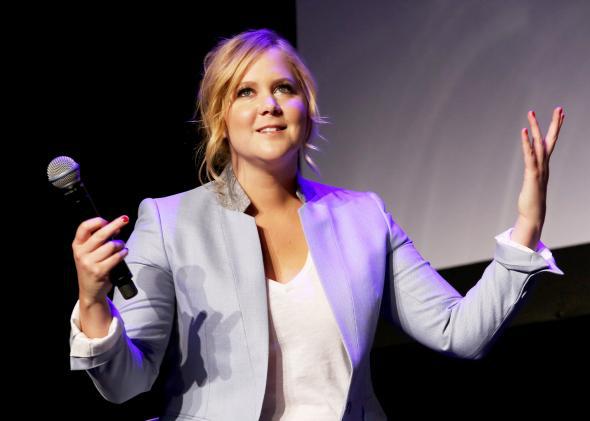Not long ago, the New York Times crowned Tyler Brûlé, a sleekly sophisticated design mogul, “Mr. Zeitgeist.” But the throne was occupied: A different NYT piece had already declared Marie Antoinette queen of the ever-shifting zeitgeist. Before her, the paper had proclaimed Rosa Parks a “zeitgeist warrior,” and ascribed zeitgeist-whispering powers to Peaches and Pixie Geldof, Bionic Woman, the phrase “bonuses are back”(BAB), and Al Gore. The feistiest recent use of the term comes courtesy of Lindsay Zoladz, who compared Amy Schumer to “a comet streaking gloriously across the Zeitgeist, leaving a tail of smudged mascara and Fireball aftertaste in her wake.”
For a wisp of language compounded of ghostliness and time, the zeitgeist is sure making its presence felt. But what exactly do people mean when they invoke it today? A prevailing opinion about kale chips? Backlash against a guacamole recipe? How did the word zeitgeist come to feel so small?
A zeitgeist used to be a formidable thing. Matthew Arnold coined the term in 1848 to capture the spirit of social unrest that suffused Victorian England. In 1933, Aldous Huxley wrote in a letter that the zeitgeist “is a most dismal animal and I wish to heaven one cd escape from its clutches.” Implored W.H. Auden: “May we worship neither the flux of chance, nor the wheel of fortune, nor the spiral of the zeitgeist.” This threatening creature was capricious in its moods and careless about tradition. It was sinister—powerful enough to convince individuals that they were not responsible for their own choices, that they were merely carried along by the romantic gust of the now. In Bismarck’s Germany, the terrifying phantom of volk nationalism absolved people of any need to resist the pull of consensus and think for themselves. But if we used to talk about the Roaring ’20s or the Flower Power ’60s, great sweeps of history distilled into luminescent symbols, now we get a 5-minute-long zeitgeist consisting of, say, TV shows about white girls in Brooklyn. Somehow, the zeitgeist—once so historical and grand—has become an anemic, trivial little sprite.
The media coverage of Girls was arguably the first harbinger of our zeitgeist-saturated zeitgeist. “So zeitgeisty it hurts,” wrote Alexandra Petri of the show in 2012, because zeitgeists, like mirrors, can be cruel. Creator Lena Dunham was hailed/slagged as the “zeitgeist queen,” “the maven of the millennial zeitgeist,” a zeitgeist devourer, a zeitgeist seizer, a “zeitgeist figurehead,” and the darling of “media outlets desperate to ride the zeitgeist.” Since then, the term has continued to spiral. In 2013, Joseph Burgo wrote that Lady Gaga’s song Born This Way speaks to the “anti-shame zeitgeist”—but the zeitgeist was also accused of dabbling in fat-shaming and slut-shaming. Kanye vowed to “pop a wheelie on the Zeitgeist” in 2014. And now we are drowning in zeitgeist: Mindy Kaling said last month of Parks and Rec, “Because it’s zeitgeisty, it would be considered a hit [on cable].” (What if zeitgeist just equals “a raft of things that would be a hit on cable?”) We are supposed to believe that the contemporary zeitgeist is full of schadenfreude. And iPhones. And cheese.
On Twitter, a hoverboard might ride the crest of the zeitgeist and you may think you are original until you realize that “you’re just another spirit in the zeitgeist’s realm.” Elle magazine has its very own “zeitgeist” rubric, which entails articles on everything from the “ultimate girl crush” to “11 times Taylor Swift looked exactly like an emoji” to “6 things women should totally stop apologizing for” (including, perhaps, looking like an emoji).
Clearly this is a time in which we are constantly in the throes of some swift, consuming moment—an age of obsession, wherein we get “hysterically excited about very good but not hugely original cultural products seemingly every other month,” as Willa Paskin put it in Slate last year. Serial. True Detective. High Maintenance. There is always some new fad to point to, as totalizing as it is transient. So zeitgeist feels like a useful word for capturing this overwhelming illusion of cultural consensus. But what we are calling zeitgeisty these days has none of the inclusive significance of a true movement. From within our media bunkers, we imagine that the entire world is as transfixed by The Latest Thing as we are, but all we’ve done is type #BroadCity into Twitter.
Either the mini-zeitgeist guts our perception of just how diverse the culture is, or it offers us little incentive to care. The modifier zeitgeisty used to mark something out as widespread, a unifying force (Sgt Pepper was zeitgeisty)—now it serves as a password into specific echelons of cool. The word often refers to the niche-ily aspirational: Marie Kondo, or Pilates. It’s as if, since we can’t knit our fractured universe of tastes back together again, we’ve settled for paying lip service to the choicest fare.
Science-fiction writer William Gibson has claimed that the present moment is defined by “atemporality,” a “new and strange state of the world in which, courtesy of the Internet, all eras seem to exist at once.” The contemporary zeitgeist, then, has to do with not having a zeitgeist, or having an infinite number of zeitgeists, an undifferentiated Gesundheit of zeitgeists. This notion is hardly peculiar to 2015—in his 1910 tract The Spirit of Romance, Ezra Pound intoned that “all ages are contemporaneous.” If that’s true, surely the way to honor such simultaneity is not to parse it into fingernail slivers of fleeting obsession. Instead, let’s reserve this term for those startling, rare moments of clarity when an entire culture rises up as one, to support civil rights or condemn bigotry or mourn the dead. Either that, or zeitgeist should just give up the ghost.
